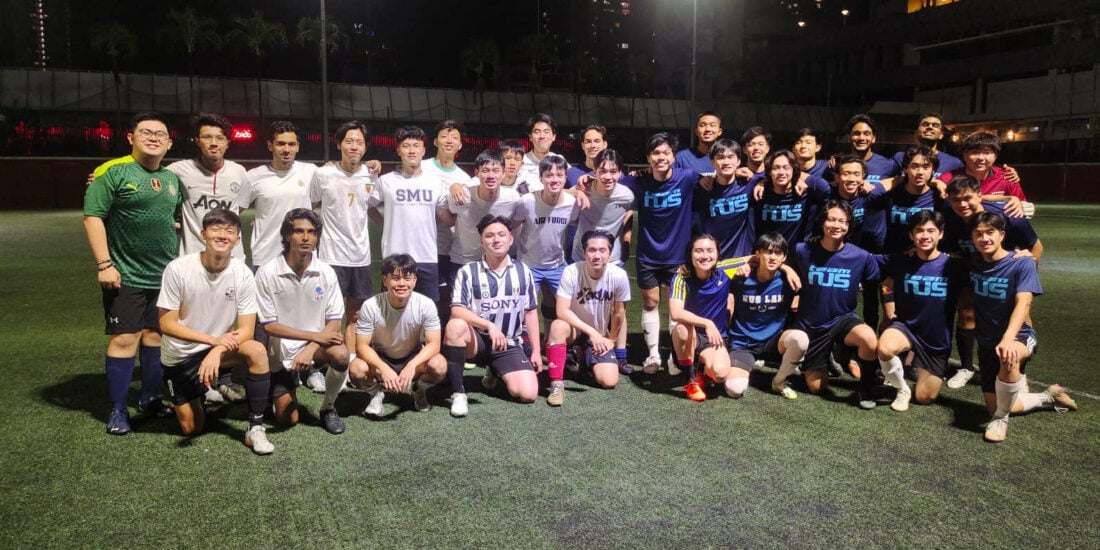
Tax Considerations for Singaporeans Studying in the U.S.
Each year thousands of Singaporeans move abroad to pursue education opportunities at universities around the globe. Some of the top destinations Singaporeans choose to study include Australia, United States, and United Kingdom. It is estimated that the number of Singaporeans studying in the U.S. exceeded 4,400 in 2022.1https://opendoorsdata.org/data/international-students/all-places-of-origin/ The U.S. remains an attractive option for Singaporean students. Before committing to studying in the U.S., it is important to consider an often overlook topic – taxes. The U.S. has a complex system of taxation, and it is important for Singaporeans to be informed about the U.S. tax implications of studying in the U.S. and what to expect if they decide to remain in the U.S. after completing their studies.
There are two primary components of taxation that must be considered by those who want to study in the U.S. First, the taxation of income. Income tax broadly covers any money or property earned by the taxpayer such as salary, dividends, interest, rent, certain scholarships, income from stock sales, etc. Second, the taxation of transfers. Transfer tax is generally referred to in the U.S. as estate and gift tax. This area of tax covers gratuitous transfers of money or property such as a gift from a family member, an inheritance, a beneficial interest in a trust, etc. How the above items are taxed varies depending on a person’s citizenship and residency status. This article is focused on the tax treatment of non-U.S. citizens who are not permanent residents (no green card). Later it will also address what to consider before deciding to remain in the U.S. after studying.
Income Tax
The U.S. taxes the income of U.S. persons differently from non-U.S. persons. The term “U.S. person” has a special meaning in the context of taxation and its meaning is different for income tax and transfer tax. For income tax, a U.S. person includes a U.S. citizen, green card holder, and those that meet the substantial presence test. A Singaporean studying in the U.S. should consider whether they will meet the substantial presence test.
The substantial presence test is a formula used to determine if a person has physically spent enough time in the U.S. to be taxed as a U.S. person. Fortunately, most international students will not meet the substantial presence test. This is because students temporarily present in the U.S. under F, J, M, or Q visas, who substantially comply with the requirements of the visa, are exempt from the substantial presence test. International students in the U.S. on the above-mentioned visas will not be taxed as a U.S. person if they comply with the requirements of their visa. So, how will they be taxed?
In the context of U.S. taxation, non-U.S. persons are called nonresident aliens (NRA). An NRA is only subject to U.S. income tax on their income earned from U.S. sources. The rules for determining the source of income can get quite complicated, but here are the basics for students that are taxed as NRAs:
- Salaries will be subject to U.S. tax if the services were performed in the U.S.;
- interest from certain bank accounts is not subject to U.S. tax;
- dividends will be subject to U.S. tax if they are paid by a U.S. corporation;
- rents and income from real property is sourced based on the location of the property;
- scholarships from a U.S. university are subject to U.S. tax unless the scholarship is a tax-free scholarship under U.S. law.
Special rules apply for the taxation of capital gains. A capital gain is income from the sale of property. The most common example is income from the sale of stock. Most Singaporean students are subject to a 30% tax on their U.S. source capital gains unless a tax treaty provides for a lesser rate of taxation. Singapore does not have a tax treaty with the U.S.
The 30% tax applies if two elements of the rule are met. (1) At the time of their arrival in the U.S., the NRA student intends to reside in the U.S. for longer than one year; and (2) they are physically present in the U.S. for more than 183 days during the year. This rule applies to NRA students even if they are exempt from the substantial presence test.
Income Tax Filing Requirements
To be exempt from the substantial presence test due to the type of visa, an NRA student should file Form 8843 each year. The Form 8843 is not used to calculate or impose tax; it is an informational form used to explain the reason the substantial presence test does not apply.
Additionally, an NRA student should evaluate each year whether they will need to file a Form 1040-NR. This form is used to calculate and pay tax.
Filing Form 1040-NR is required for NRA students who have:
- A taxable scholarship or fellowship grant;
- Income partially or totally exempt from tax under the terms of a tax treaty; and/or
- Any other income that is taxable in the U.S.
Filing is not required for NRA students who have income only from:
- Foreign sources;
- Interest Income from a U.S. bank, U.S. savings & loan institution, U.S. credit union, or U.S. insurance company;
- A scholarship or fellowship grant that is entirely tax free under U.S. law; and/or
- Any other income that is nontaxable in the U.S.
Transfer Tax
Like the income tax, transfer taxes are different for U.S. persons and non-U.S. persons. However, the definition of U.S. person is different for transfer tax. For transfer taxes, a U.S. person is a U.S. citizen or any other person who is “domiciled” in the U.S. at the time the gift is made or at the time of their death. A person has a domicile in the U.S. if they live in the U.S., even for a short time, with the intent to remain there indefinitely. If a Singaporean goes to the U.S. to study and plans to return to Singapore or move to any other country after their studies, they are not a U.S. person for transfer tax. However, if the Singaporean student plans to stay in the U.S. after their studies and has no plans to leave the U.S., they are a U.S. person for transfer tax. Being physically present in the U.S. alone does not establish domicile unless there is an intent to remain in the U.S. indefinitely.
U.S. persons are subject to transfer tax on the transfer of their worldwide assets. They have an exemption of about US$13m (scheduled to be reduced to US$7m in 2025). This essentially means the transfer of their first US$13m is not subject to tax.
Non-U.S. persons are subject to transfer tax on the transfer of their U.S. assets. They have an exemption amount of only US$60,000. The exemption amount is significantly lower, but the tax only applies to transfers of U.S. assets. The transfer tax in the U.S. is up to 40% of the value of the assets transferred.
The U.S. transfer tax should be carefully planned for by both the student and their family or anyone else transferring assets to them. For example, wealthy Singaporeans may want to purchase a house or apartment in the U.S. for their child to use while studying. This kind gesture exposes the family to U.S. transfer tax. The Singaporean parent owns the U.S. real estate and is not a U.S. person. If the parent passes away, the U.S. real estate is subject to estate tax with only a $60,000 exemption. The full value of the real estate (less the $60,000 exemption) is subject to transfer tax up to 40%. With a proper holding structure, the U.S. real estate could have been transferred without any tax. However, failing to plan properly could cost the family hundreds of thousands in tax depending on the value of the real estate.
Staying in the U.S. After Studying
Some students may choose to stay in the U.S. after their studies. Those staying in the U.S. after their studies should consider tax planning opportunities before becoming a U.S. person, understand their annual tax obligations, and determine if there is any international reporting that must be completed.
If a student remains in the U.S. after their studies, they will likely become a U.S. person for both income tax and transfer tax purposes. This means they will be subject to U.S. income tax on all their income worldwide, regardless of the source where it is earned. Additionally, U.S. persons annual information reporting to disclose their ownership of certain foreign assets.
Common international reporting forms for U.S. persons include:
- FBAR – report of foreign bank accounts
- Form 8938 – report of specified foreign financial assets
- Form 5471 – report ownership of certain foreign corporations
- Form 8865 – report ownership of foreign partnerships
- Form 3520/A – report transactions with certain trusts and receipt of certain foreign gifts
International reporting for U.S. persons is complex and those who are new to the U.S. tend to have assets in other countries which must be reported. It is best to consult with a qualified tax professional to determine your reporting requirements upon becoming a U.S. person. Failure to file the required forms can result in substantial penalties.
Transfer tax can also get complicated when one or more members of a family are U.S. persons. Every person’s situation is unique and requires personalized advice. Often the parents of the student who decides to stay in the U.S. should engage in careful transfer tax planning. For simplicity imagine a Singaporean parent with one child. The child studies in the U.S. and decides to stay after their studies. The assets of the parent are all or mostly non-U.S. assets. This includes business interests, real estate, financial assets, and other assets in Singapore.
The parent’s assets are not subject to the transfer tax in the U.S. because the parent is not a U.S. person, and the assets are not U.S. assets. Additionally, the parent can transfer the assets to the child as a gift or as part of an inheritance with no U.S. tax. The child may have to report the gift or inheritance on a Form 3520, but no tax will be owed. While this seems like a good tax result, a problem can arise with the next generation. Once the child (who is now a U.S. person) takes possession of the family assets, they are all now subject to U.S. transfer tax when the child passes them to the next generation. Families with substantial non-U.S. assets may benefit by carefully planning which assets end up in the hands of a U.S. person.
A common structure used by non-U.S. families to benefit a U.S. beneficiary is a foreign grantor trust. Each trust should be tailored to the specific needs of the family, but there are many potential benefits of using this structure. The benefits include reduced U.S. income tax when compared to an outright gift and fewer annual reporting requirements for the U.S. person during the grantor’s lifetime. While beneficial, these structures are subject to extremely complex U.S. tax laws. Failure to comply with the U.S. tax requirements will invalidate the structure and lead to adverse tax results.
Conclusion
Singaporeans with the opportunity to study in the U.S. should be aware of the U.S. tax rules that will apply to them. Most international students will be taxed only on their income from U.S. sources. Each year, international students should file Form 8843. They should also consider whether they need to file Form 1040-NR. Generally, Form 1040-NR will only be needed if the student has U.S. source income. Students should also consider whether they will be impacted by the U.S. transfer tax, especially if they or their families plan to purchase real estate or other U.S. assets.
Singaporeans who decide to remain in the U.S. after their studies face far more complicated U.S. tax requirements. Prior to the end of their studies, students who wish to stay should consult with a tax professional to determine whether they need to engage in preimmigration tax planning. They and their families should also consider how to plan for the U.S. transfer tax, particularly if the family has significant assets held outside of the U.S.






